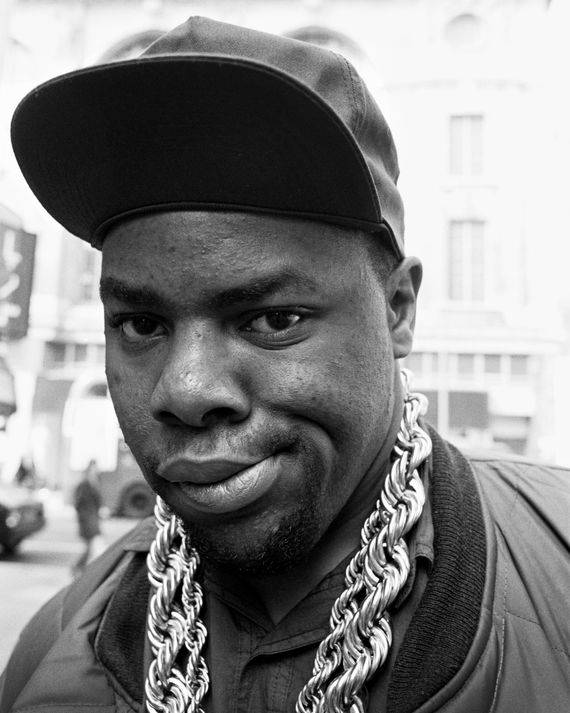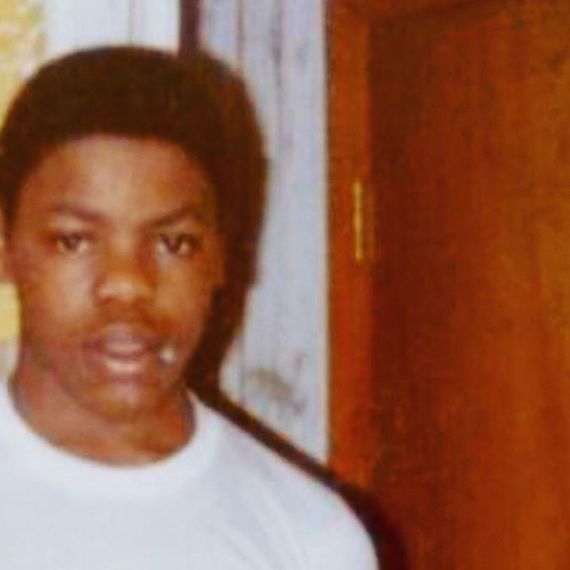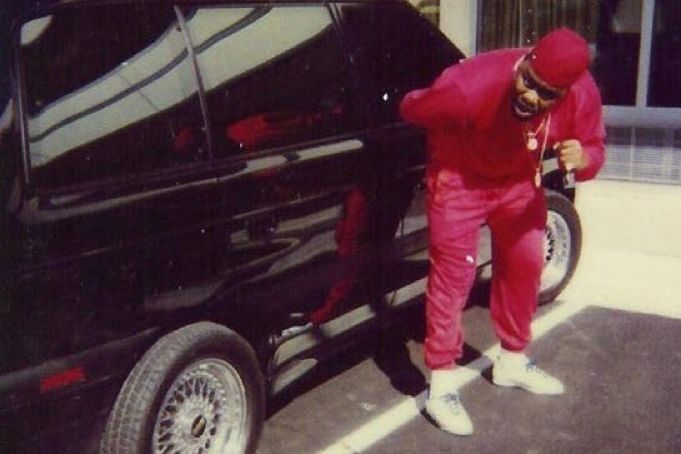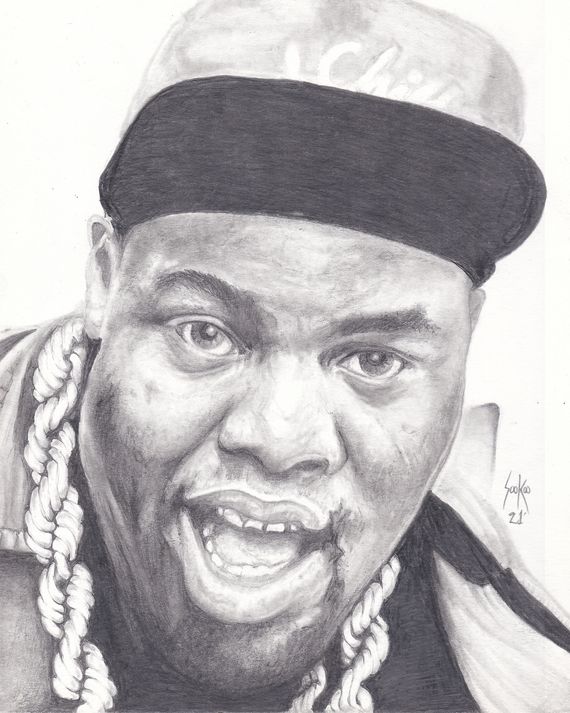
The Clown Prince of Hip-Hop. The Inhuman Orchestra. Bizzy B Markie. The world knew him best as Biz Markie, but the man born Marcel Theo Hall had many nicknames, befitting a performer bestowed with oversize talent and an even bigger personality behind his skill. When the New York rap pioneer departed on July 16 at age 57, following complications from Type 2 diabetes, the gut punch hit hard and fast. No matter how you knew Biz — through his brand of self-deprecating, block-party hip-hop, the comedic genius of the “Just a Friend” video, his playfully instructional Yo Gabba Gabba! segment “Biz’s Beat of the Day,” or his VH1 countdown appearances — his infectious energy and sheer joie de vivre could win over the hardest gangster or jaded Gen X-er. That was Biz’s ultimate gift to the world and a trait that carried into his real life. By all accounts, he was impossible not to like.
One thing Biz kept close to his chest, slow even to share details with his inner circle, was that he bounced around the foster system as a child. Not until 1972 when the Parker family, already deep with five kids, took in Marcel did he find his forever home. The family lived on Long Island in Brentwood on Noble Street, and in the Rangel housing projects, a frequent topic of his songs. From a young age, Biz was always on, handy with a snap and joke, and quickly discovered a knack for beatboxing — the singular art of turning one’s mouth into its own music-making machine — that came to define his career. He established early cred with NYC’s legendary Juice Crew in the ’80s, but it wasn’t until his off-key, romantic kiss-off “Just a Friend” became a surprise mainstream smash in 1989 that the world properly met Biz, and promptly fell in love.
Biz’s legacy will forever loom large in the city he loved and in the countless artists he influenced, from Beastie Boys (who let Biz cut loose on albums and their funkified cover of Elton John’s “Benny and the Jets”) to Will Smith, who carried the torch for “feel good” hip-hop into the ’90s. In the weeks following Biz’s death, Vulture spoke with his family, fellow artists, and celebrity admirers to get a deeper sense of the man who was a friend to everyone but so much more than that.
A Beatboxing Prodigy
Diamond Shell, a.k.a. Sheldon Parker, Biz’s younger brother: Biz got his name from his idol, Busy Bee Starski. When he told me he wanted to be Bizzy Bee Markie, I said, “You’re not busy. We sit around all day.” He dropped the Bee, and that’s how it started. I called him Mark, and that’s what the streets called him.
He came to us through adoption in 1972. [I remember] we got a call, and my mother said, “You’re gonna have a new brother.” My mother did foster care, and he was our first foster kid. She said, “When we get home, he’ll be there, and I want you to make him feel welcome.” Biz was 8 years old, and I was only 5, so I was nervous. I remember walking in the door and seeing him for the first time.
We locked eyes, and right away I knew we were gonna have great adventures. I finally had another guy who could throw the ball back to me. But I didn’t know those adventures would be legendary. He rarely talked about his life prior to coming into ours or being in the foster system. He was ours now, and he was happy. This was his life.
Breakbeat Lou, DJ and longtime Biz friend: He had massive love for hip-hop culture and getting connected with the origins and foundations of the culture. When I first met him in the mid-’80s, he said, “Yo, when did you start?” We were both in our early 20s, and I started riding the train in ’72. I started B-boying in ’73, DJing in ’74, and hard-core [crate] digging in ’78. He was interested in how I went about digging and putting records together. He was a true student of the game and wanted to know all the steps I had taken.
Biz was like an elephant. He was like an idiot savant and never forgot anything. You could say something to him like, “Yo, Biz, I saw you in Central Park in 2001,” and he’d say, “Yeah! I had the green suit on, and I was on the bike; it was cloudy.” He’d break down the whole scene. When Biz would go digging for records, his famous words were always “It has to be fun-ky!” There’s an emphasis he’d always put on funky. Doesn’t matter what the album was as long as it was funky to Biz. It could be Barbara Mandrell, Judas Priest, or Jefferson Starship. Of course, he loved James Brown and Bootsy Collins. If it was funky, he rocked with it.
Shell: I remember the first time he beatboxed. This was junior high school. We used to sit around hamboning, which was a [dance] rhythm thing we did. One day, Biz just started beatboxing at 11 years old and never stopped. There were cliques and crews in our neighborhood, and if you didn’t have a certain look, you were outcast. This is where the song “Vapors” came from because you got totally ignored if you didn’t fit into those cliques. Biz’s response was to battle, and one of the craziest battles was [in 1988] in Bay Shore at the South Shore Mall. [Future Bad Boy star] Craig Mack came up to Biz, saying how he could beat him. It was on. They started battling, and a crowd gathered. Biz broke out a rhyme that I had never heard before, which was amazing because we wrote all our rhymes together in our bedroom.
He dropped Craig with that rhyme, and about a month later it turned up in the first lines of Big Daddy Kane’s song “Long Live the Kane.”
Ice-T, rapper and actor: I was a fan, but I didn’t know Biz before the Dope Jam tour [in 1988]. I was signed to Warner Bros. through Sire Records and then Cold Chillin’ came over there with Big Daddy Kane and all its acts. Biz was on that roster, so I was spinning his records. When we went out on Dope Jam, I don’t even know how we ended up on the same tour bus. The opening acts didn’t get paid that much, so it was a financial thing to squeeze us all in together. It was never really awkward, though, because Biz Mark’s vibe was always fun. He said to everyone, “Before we start this tour, we’re all gonna have fun.” He set the pace.
His boy Ralph was with him, TJ Swann, Cool Vee, and a white boy named Sean who called himself the Human Pitbull and was a little gangsta. When you’re on a tour bus every single day for like 90 shows, you’re definitely gonna get close. One time, we were sitting around the bus getting ready to leave from a show, and the single guys were always trying to pick up chicks. The night before, Biz had been trying to get with some girl who was flirting with him, but he didn’t end up with her. The next day, we saw her coming out of a hotel with Barry Bee, one of Doug E. Fresh’s DJs. I’ll never forget the look on Biz’s face watching her leaving that hotel from across the parking lot.
Biz had so much jewelry that he’d let his crew wear it, like big ropes. On certain occasions, he’d want all his jewelry and would yell, “Truck me up! Truck me up!” That meant everyone had to take their jewelry off and put it all on Biz. When it came to the ladies, Biz Mark was an oddity. He was like Flavor Flav or Ol’ Dirty Bastard, and it took a special girl to wanna get with Biz Markie. He wasn’t so much a ladies’ man, but if a lady came in his area, he knew what to do and what to say.
Shell: Growing up, we were not popular with the ladies. Oh my goodness, not at all. I would try to talk to a girl and use the line “Biz is my brother!” And they would go, “Eww.” I’d think, If he’s ugly, what’s that got to do with me?! Things picked up for Biz with the ladies during the Roxanne Shanté era. One day [in 1986] he showed up in a live video DJing for Shanté, and life changed. But Biz didn’t. He never changed his attitude and was always a good guy. It just took that video for the ladies to take notice. Coming from a big family, we had to wait our turn and were thankful when we got it. Biz was always thankful for getting his chance.
Even in difficult times, everything was a laugh and fun with him. My older brothers were bigger and stronger than me, so I couldn’t really run with them until I grew up. As Biz liked to rap about, we grew up in Long Island on Noble Street. Money was tight, and we didn’t have more than we needed, but we had exactly what we needed.
Around Christmas, Mom would give us a magazine and tell us to circle the toys we wanted. Me and Biz were sitting on the porch, and I was circling whole pages in the magazine. I gave it to Biz when I was done, and he said, “I don’t want nuthin’ except this.” He circled this calculator watch, and that thing was like a hundred dollars back in ’79. I said, “Biz! You’re not gonna get that!” He doubled down again, saying, “If I don’t get this, I don’t want nuthin’.” So I circled some toys for him because I didn’t want him to wake up on Christmas with nothing.
We looked out for each other as kids like that.
The Making of “Just a Friend”
Michael Rapaport, actor, director of Beats, Rhymes & Life: The Travels of A Tribe Called Quest: “Nobody Beats the Biz,” “Just Rhymin’ With Biz,” and his whole first record [1988’s Goin’ Off] was pure hip-hop. Everybody was into it, and those tracks were played over and over on 98.7, WBLS, and the hip-hop shows. When he performed, he had the crowd going by himself. I saw him perform two times at Latin Quarter and at Union Square, where he had the fucking place bumping.
John Leguizamo, actor and director: I was in my apartment in Queens when I first heard Biz. Jackson Heights, on the fourth floor, in one of the project buildings we lived in. It was the late ’80s, and I can’t remember if it was Rap City, The Box, or Yo! MTV Raps, but I used to live by those shows. It was the “Just a Friend” video, and I thought, Oh my God! This is so fucking fun! The fun of hip-hop in those days was so beautiful. It had a sense of humor and was about celebrating life and creativity. It was everything that I wanted to be as an actor. Biz doing the John Belushi Black Beethoven thing on the piano was hilarious. I needed a visual to go with my music, and there was no better visual. He was such an incredible-looking character, and the fun he was having was infectious. He was the unlikeliest guy to be a Don Juan, and that self-deprecation made him instantly lovable.
Lionel C. Martin, director of the “Just a Friend” video: I did all of his videos from the very beginning. I met him through the Cold Chillin’ Records family, which was run by Tyrone Williams. I had the opportunity to start my career by doing Roxanne Shanté’s “Revenge” video; she was the first female artist on their label. Biz used to beatbox for her, so it was a real family thing, along with Big Daddy Kane, Craig G, and Masta Ace. When you met one of them, you got to meet everyone. When I first met Biz, he already had quite a reputation for beatboxing, and I grew up on the whole hip-hop vibe. I knew how incredible he was, and being able to work with him, he was very unique.
With “Just a Friend,” Biz wanted to do this whole piano thing, and he mentioned he wanted it to look like Mozart so I brought in the powdered wig. Most hip-hop artists would be like, “Nah, I’m not doing that.” Biz was down for anything. The only other artist I’ve ever worked with who would wear something crazy and kooky I came up with was Flavor Flav. The wig just made sense, and it became magical when he put it on. The shirt didn’t even fit him, so we had to cut out the back of it. The jacket fit, but he couldn’t take it off; otherwise, you’d see the ripped shirt. I shot it from an angle so you couldn’t tell.
The [whole thing] was a two-day shoot because we didn’t have any money back then. You had to be superfast and super-creative, and that’s how I chopped my teeth. I tried to make them big productions because deep down I wanted to be a filmmaker, which I eventually became. They didn’t give hip-hop videos hardly any money, and “Just a Friend” maybe cost $40K, if that.
[I remember] when Biz was playing the piano, a production assistant whispered into my ear, “Lionel, he’s not playing the right chords.” I said to Biz, “You played the keys on the song, right?” Biz said, “Yeah, but in the studio it’s different.” I could tell he was sensitive about it, but for accuracy, I got a pair of stand-in hands to play the keys. We put a little makeup on his hands and added the jewelry.
Ice-T: When “Just a Friend” blew up, it was absolutely a breath of fresh air in hip-hop. We’re from an era where originality is paramount. You had to be original. When you went to see the Fat Boys, it was some fat boys. When you saw Whodini, they were some smooth operators. Kane was a New York player. Ice-T was an L.A. player/gangster. Everybody had to be different, and the more different you could be, the more points you got. Biz Mark stepped so far away from everybody, and it was so original that you had to give him points. Everybody was like, “Yo, that shit is dope!” If everybody was showing a picture of themselves on a beach, Biz was on a zebra in Africa, fucking motherfuckers up. That’s where you got the points.
Martin: He loved comedy and making people laugh. I had a production designer named Kevin who brought in the shorts with the hearts all over them. Biz saw them and immediately said, “Yeah! Those!” We did the whole Igor thing with the butler in “Just a Friend.” Cobwebs on the piano. Just crazy stuff.
Biz was late on the second day of the “Just a Friend” shoot, and when he finally got to the set, I was pissed. That day started with the college scene, and we were already behind schedule. The room where he catches Swann kissing the girl was an actual college dorm room. It was a 10 a.m. call, and he didn’t show up until 1 p.m., so we waited around for hours. I was pissed, but I never raised my voice to Biz. We didn’t have that kind of relationship, and it wouldn’t have done anything.
I said, “Dude, what happened?!” He said, “We were driving on the LIE and got a flat tire.” I’m thinking, Okay, you had a flat but are still four hours late. He could tell I wasn’t buying it, so he said, “Then we drove some more and got another flat.” His friends were there, and he was kinda smiling. What could I do? That was Biz, and that was who he was. You could never get angry with Biz. I could be frustrated, but he was impossible to be mad at. He was too damn likable.
A Legacy Misunderstood
Michael Rapaport: One of the things that frustrated me about fans who came along later with the “Just a Friend” video was that they just thought he was funny. He was funny, but he was one of the first to bring that playfulness into hip-hop. In ’86 there was no smiling in hip-hop, and while Biz was funny and playful, he wasn’t a joke or a gimmick. When he first came out with Shanté, that shit was dope. It wasn’t funny or cute. His beatboxing was dope, and it was really only Biz, Doug E. Fresh, and Buff from the Fat Boys doing it. He was doing all this dope shit, when he was only seen as “the funny guy.”
Ice-T: The way he rapped — his beatboxing skills and unorthodox freestyling are not easy things to do. He was supremely talented. It’s hard enough just to rap, but to be all over the place, while still on beat and saying shit that’s dope, is not easy.
He was one of those people who never got mad and just made everything into a joke. I hang out with Kool Keith, and if you get Kool Keith mad, then something has seriously gone wrong and I really don’t wanna be there for it. There’s very few people who have a really beautiful, happy heart, and Biz was one of them. You just like kicking it with people like that. To be around Biz Markie, you were always about to have fun.
Leguizamo: Music was a huge part of my life, and I was always dancing. I was a kid when uprock was invented, so all my friends and I were competing and battling. Uprock turned into break-dancing, and I was also doing the hustle. Dance was everything at the house parties. Biz was the soundtrack to a lot of that. I put him on so many mixtapes, and he’s still on my “Feel Good” music playlists. Whenever you put Biz on at house parties, it would bring everyone to the dance floor. Everybody would just go nuts. Around that time, I was going to Roseland, Red Zone, and all those old, amazing clubs. When Biz came on, everybody in the club would be singing every single fucking lyric. Latin and Black culture was blending hard at that time, and our cultures were influencing each other. The DJ would cut the music and just let the crowd sing in unison. Biz brought everyone together like that.
Martin: He was a character and a really funny guy. I loved doing videos for him because he’d come to my office in midtown and say, “Hey, Lionel. We’re gonna do this video, and it goes like this …” He would tell me the things he wanted to do with it, and after a while I realized he was just telling me the lyrics of the song. He was such a great storyteller, and as a filmmaker, it was like he just brought in a script for me. I just had to visualize it and give it my little spin.
Deep down, he knew. He knew he wanted to be funny. He wanted to be a comedian, but he was also incredible at beatboxing and hip-hop. It was so fun making these little movies with him.
Rapaport: If there was no Biz Markie, there was no Big Daddy Kane. If there was no Big Daddy Kane, there would be no Jay-Z. Obviously, there’s other influences to Jay-Z, but that’s a fact. Period.
Bootsy Collins, R&B-and-funk bassist for James Brown and Parliament-Funkadelic: Biz for me was the George Clinton of Hip Hop, but he was more than Clownery, he was more than “Just a Friend.” When I met him at one of his concerts, we talked backstage & it was as if we knew each other before we had ever met, which led to a level of Respect for each other throughout both our careers. We were Soul Brothers!
Biz for me didn’t try to be something he wasn’t. He just owned who he was & what he was really good at. For me, that was the start of our friendship. That’s what drew me closer to him & to this day I believe that was the unseen magic he had that others would kill each other for, but it was a natural for the Biz! I think he taught a lot of the Hip Hop world that u can do anything if u dedicate ur entire being into who u are & what u do. His Freedom of combining genres of music holds a place in history on its own. His knowledge & Wisdom about his Craft & the Streets will always carry his message & legacy throughout Time & Future Worlds. Biz had a Purpose & he fulfilled it. He spread the Love through his Being, his Music & his Gifts to the World. There will never be another like ‘The Biz’ mainly because there is no Manual on how to be The BIZ’! Thx LIL BROTHER for Blessing us with ur Being!
Breakbeat Lou: I knew Marcel as well as Biz Markie. In 2012, I was going through some personal stuff and was about to leave the game again. He said in a steady, calm tone, without any comedic inflections, “Yo, stop being a pussy. You’re Breakbeat Lou. You have something nobody else has. This is a new era, and you have to work harder. Think how many times I’ve reinvented myself. You gotta work hard, man.” That was Marcel talking to me, and it penetrated my mind, body, and soul. That conversation is probably the reason I’m still here today. I went from booking one gig a month to booking a full month and doing what I have to do. He was a heartwarming, sentimental man, and that’s probably what most of the world never knew. He only showed that side to very few of us, and I consider myself extremely lucky to know that.
Shell: One of our sisters is a doctor, and I remember the day [in July] they decided to let Biz go. It was a complicated process, but basically the medications in the end were only making things worse. I got a chance to call him a couple days before [his death], and I told him that I loved him and how much I missed him. I told him that I couldn’t wait until he was up and around because we had to start doing shows again. I said we’d get him the baddest wheelchair in the world. And then he cried. I had only seen Biz cry twice in my life. And that was it.
But I’ll leave you with a funny story.
There were a bunch of kids on the block, and I watched Biz have a lot of street confrontations. He was not soft with his hands, and he could fight, man. I remember one Halloween, our parents had bought a dryer, and it came in a huge box. Biz took the box and decided to be a robot, so he cut out holes for his arms and head. He painted a target on the front and back and put an old teapot on his head. The street was packed with kids, and they immediately zeroed in on this big box with targets on it. They yelled “Target!” and started pelting Biz with eggs. I was too young to do anything, but they egged him for like ten minutes.
I dove into the bushes and just waited for it to be over. Biz had turtled up and went inside the box and sat on the sidewalk. After they finally stopped, I peeked out and said, “Yo, B, you okay?”
He stood up and said, “I saw everybody who threw an egg. I’m beating them ALL up.” It took him to Christmas, but he found all those kids and beat them up. We had some great times …
Stephen A. Sookoo, airbrush artist and childhood friend: I was born in Trinidad, started school in Manhattan, then moved to Long Island in grade school. Biz and I grew up in the same neighborhood; we actually met at the breakfast table at a mutual friend’s house. Biz was eating cereal from a salad bowl! He was a few years older than I, but we hung with the same crew [when] I used to break-dance and do graffiti. I missed out on most of his parties and events from ’87 to ’90 while I was on active duty in the Navy. But needless to say, any time Biz had a party or event and I found out, a wave of the hand and “Yo, Sookoo! Who you got with you?” — boom, we were in. It didn’t matter if it was a red-carpet event or local bar; Biz never forgot his friends or roots.
This pencil piece [below, drawn after his death] was extremely hard to complete. So many memories and emotions. Biz was a true friend.
These interviews have been edited and condensed for clarity.








